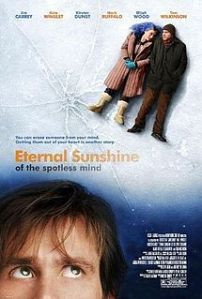Below is the edited version of an essay I wrote this year for a Philosophy of Film course at my college. The books cited are Thinking on Screen: Film As Philosophy by Thomas Wartenberg, New Philosophies of Film: Thinking Images by Robert Sinnerbrink, and the Deleuze-inspired Filmosophy by Daniel Frampton. Both offer some good perspective on the philosophy of film, albeit diverging in the fact that Wartenberg’s account takes a far more ananalytical approach, and his analysis of Eternal Sunshine of the Spotless Mind doesn’t make much sense (his chapter on The Matrix is spot on though). A few years ago, actually before I took classes on Aesthetics and Philosophy of Film from Prof. Paul Loeb, I considered movies and television to be purely within the realm of entertainment. While I’m still convinced that written texts are the best way for me to access and relay philosophical ideas, movies do offer an interesting, viscerally engaging means by which such ideas can be both probed through use of audiovisual effects, narrative plot, and objects within the film, sparking at the very least an interest, and at the most offering an argument and comprehensive exploration. Possibly the most interesting aspect of movies are their ability to capture ineffable elements of human experience language cannot describe, in a manner stripped of the phenomenological associations we generally have as the background of our direct experience, as Deleuze argues. Films are stripped down to the foreground, and in such a way provide an even purer sensory input than our real lives, though lacking integration with our senses of touch and smell.
The Michel Gondry / Charlie Kaufman collaboration Eternal Sunshine of the Spotless Mind provides a good example of the possibility of presenting philosophical concepts in a fictional feature film. This paper will show how Eternal Sunshine’s content supports ideas advanced by Wartenberg and Sinnerbrink that while films don’t explicitly present philosophical arguments as books do, they explore them in a unique way capturing the ineffability of human experience. Continue reading
